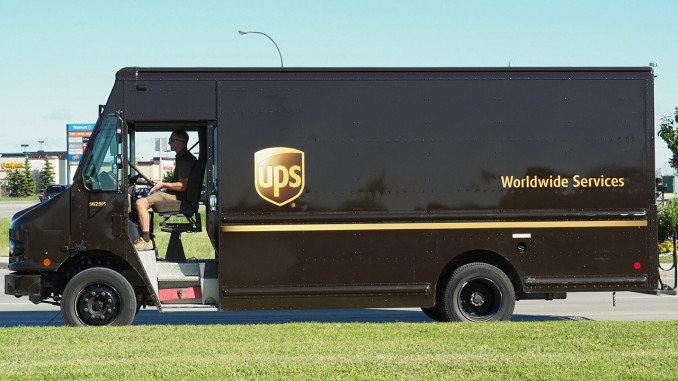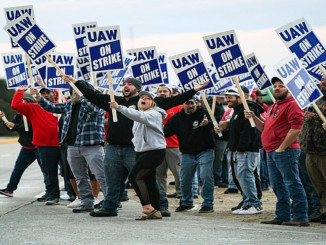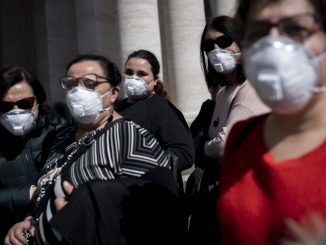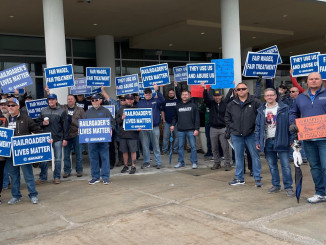
The International Brotherhood of Teamsters and United Parcel Service (UPS) announced on Tuesday, July 25 that they have reached a tentative agreement on a new five-year contract for approximately 340,000 workers. Teamster members will vote to approve or disapprove the contract, with voting spread out between August 3 and August 22. They had voted to authorize a strike starting August 1, the day after the contract expires, if the company and union failed to reach a tentative agreement. It’s generally harder to mobilize people and launch a strike three weeks after the contract expires. The stakes are high. In early July, UPS walked away from the bargaining table and it appeared to many that a strike was likely. Who says the voting process has to be dragged out that long?
Both the company’s management and the union’s top officials, along with the U.S. Department of Labor, seem confident that the workers will vote to ratify the contract. They both say that the tentative agreement gives substantial pay increases to many workers, meets some workers’ demands on scheduling shifts, and addresses serious concerns about health and safety, particularly the need for air conditioning in trucks to counter extreme heat. But the actual language says that air conditioning in truck cabs applies only to new trucks purchased starting in 2024. So, how many trucks will be without air conditioning and for how many years?
We have to be a little suspicious when UPS CEO Carol Tomé remarked that the contract is a “win-win-win agreement” for all involved. Teamster president Sean O’Brien said in a statement. “We demanded the best contract in the history of UPS, and we got it. UPS has put $30 billion in new money on the table as a direct result of these negotiations. We’ve changed the game… This contract sets a new standard in the labor movement and raises the bar for all workers.” Having settled before the strike deadline, O’Brien and other Teamster leaders are, of course, going to say it’s a big win. We should be wary of corporate CEOs and union officialdom bearing gifts!
The same goes for the support from Washington D.C. President Biden, who last December interfered in the collective bargaining process and forced freight rail workers to accept a very bad contract, said of the tentative UPS deal, “This agreement is a testament to the power of employers and employees coming together to work out their differences at the bargaining table in a manner that helps businesses succeed while helping workers secure pay and benefits they can raise a family on and retire with dignity and respect.” Could he be any more hypocritical? In reality, he wants to avoid a major strike affecting the economy at the beginning of his reelection campaign.
Teamsters for a Democratic Union (TDU), a reform caucus in the union that had called for a militant struggle, is praising the tentative contract:
[T]he company… agreed to a tentative agreement that forces the company to deliver record wage increases on top of all the improvements we had already won in our year-long contract campaign.
In between, tens of thousands of UPS Teamsters nationwide organized Practice Picketing, showing UPS we were ready to strike. Management read the writing on the wall and went from “nothing more to offer” to the most lucrative contract in Teamster history.
But is it all that the workers need and deserve? Why did the UPS CEO say that it was a win for the company, which is notorious for its unsafe and unhealthy working conditions and its attempts to divide workers with a “two-tier” pay system? According to the Wall Street Journal, “[T]he big raises, especially for part-timers, will give UPS an incentive to replace workers with robots and technology.” But some workers are saying that the deal is bad for part-timers in other ways as well, among other things failing to give them a path to full-time status. The Wall Street Journal also says that the contract may give the company more flexibility to schedule work on weekends.
We can’t say for sure whether the Teamsters at UPS will vote to approve this contract. The union leadership says that it is a great contract. But so does the company. It certainly doesn’t solve all the workers’ problems. No contract does. And we don’t know yet what the workers think about the details.
It seems apparent that just the threat of a strike got the workers more than the company had said it could give. For a threat to have an influence, it has to be credible. Workers everywhere need to recognize that they have the power to bring business to a halt in a fight for what we need. The UPS workers are just beginning to see and discuss the details of the proposed contract. They will decide whether to accept or reject it. Workers need to rely on ourselves, not the promises of greedy corporate CEOs, hypocritical politicians like Biden, and big-shot union officials like O’Brien.




